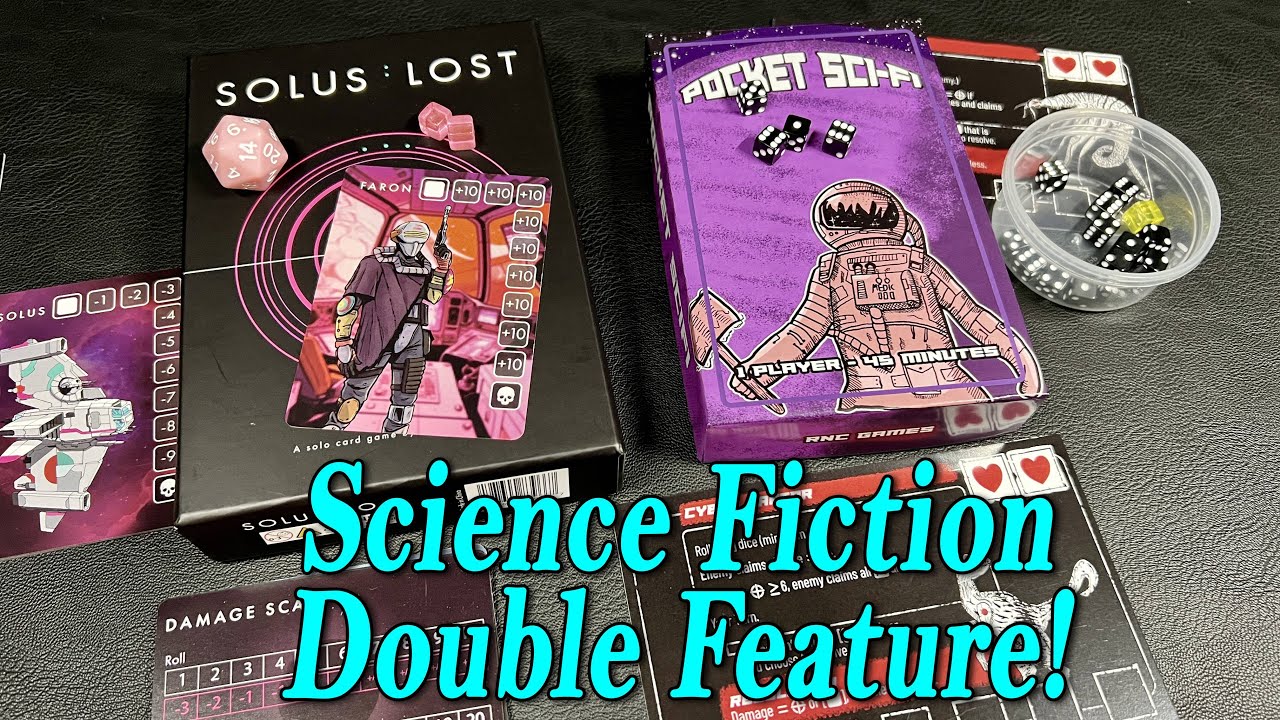@Dungeondive reviews two small-scale sci-fi games: Pocket Sci-Fi and Solus Lost. Both are compact games with unique mechanics, though Daniel notes areas for improvement in each.
Pocket Sci-Fi
Daniel describes Pocket Sci-Fi as a dice manipulation card game with some Choose-Your-Own-Adventure elements. In the game, players act as cyborgs fighting against the alien synth race. The gameplay revolves around rolling dice, manipulating the outcomes using biochips (cybernetic implants), and progressing through a series of encounters. Players earn points based on their performance, aiming to accumulate 12 points to win.
Pros:
- The dice placement and manipulation mechanics are engaging and satisfying, allowing players to feel clever when they succeed.
- The game comes with a character sheet and a series of mission encounters, giving it a structured, guided experience.
Cons:
- Despite being called Pocket Sci-Fi, the game requires a lot of components, including printed character sheets, maps, and a mission book, making it less portable than the name suggests.
- Daniel suggests it could benefit from a more card-driven setup, where maps and encounters are represented by cards, making it more compact and replayable.
Solus Lost
Solus Lost has a different focus, where the player is a lone space traveler trying to activate four “home links” to find their way back home. Players encounter NPCs, enemy ships, and events through a deck of encounter cards. Daniel was initially intrigued by the visual design and concept but found the gameplay somewhat lacking in depth.
Pros:
- Daniel appreciates the visual style, color scheme, and sci-fi theme of being lost in space.
- The game includes recruitable NPCs and tools to enhance your ship, offering some variety.
Cons:
- The main issue is that the game’s choices don’t feel meaningful. Players draw two blind cards and choose between them, but since both cards are unknown, it doesn’t feel like a true choice. Daniel compares this to Iron Helm, a game that offers more strategic decision-making.
- He suggests that showing one card face-up and leaving the other hidden would improve the decision-making element and add risk and reward to the game.
Final Thoughts
Daniel finds both games enjoyable but notes that they could be improved. He appreciates Pocket Sci-Fi’s dice mechanics but wishes it lived up to its “pocket” promise by being more portable. For Solus Lost, the game has potential, but the lack of meaningful decisions limits its appeal. He feels the game could be enhanced by adding more impactful choices, like whether to take a known or unknown risk.
Both games could fit into a collection for sci-fi enthusiasts looking for something light and compact, but they fall short of becoming must-haves.
